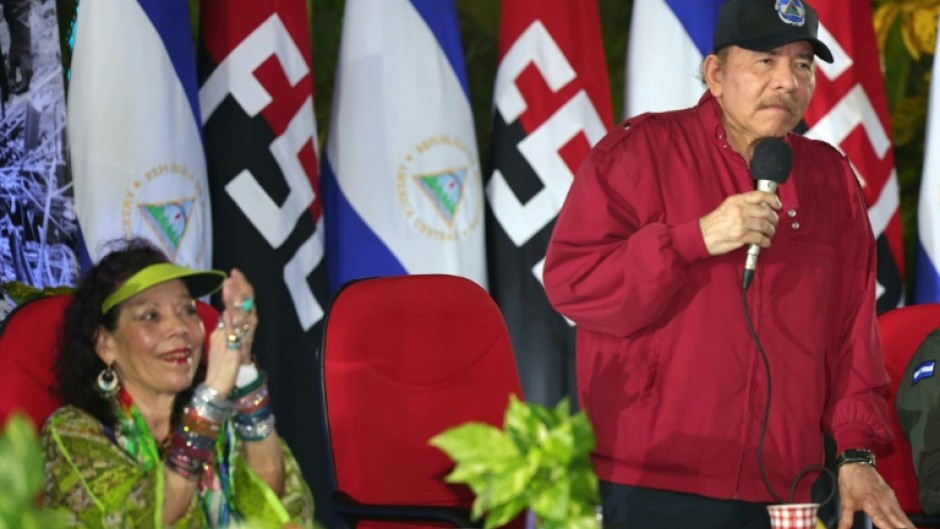Nicaragua on Monday shuttered 1,500 NGOs, bringing to more than 5,000 the number of such entities scrapped in a crackdown on opponents by President Daniel Ortega.
The government has jailed hundreds of critics, real and perceived, since protests against his regime in 2018 that were met with a crackdown the UN said left more than 300 people dead.
MANAGUA - Monday's announcement was the single-largest targeting of NGOs to date, bringing the total to more than 5,100.
Charges against the latest batch of entities, most of them religious, are that they had failed to declare their income, according to a government notice.
They will have their assets seized.
Ortega's government considers the 2018 protests an attempted coup d'etat promoted by the United States and backed by the religious community.
Last week, it passed a regulation requiring NGOs to work exclusively in "partnership alliances" with state entities.
The Nicaraguan Red Cross and several Catholic charities are among the NGOs shuttered to date, with many hit by charges dismissed as spurious.
Other targets have included rotary and chess clubs, sports associations and groupings of small traders, rural people and pensioners, as well as Catholic radio stations and universities.
Ortega's wife and vice president, Rosario Murillo, has described religious people as "children of the devil" or "agents of evil" who carry out "spiritual terrorism."
- 'Persistent repression' -
Last month, a group of United Nations experts slammed "systematic and widespread abuses of international human rights law" in the Central American country.
At the end of 2023, some 30 clerics were imprisoned and later ejected from the country and sent to the Vatican.
Also last year, the government expelled more than 300 politicians, journalists, intellectuals and activists, accusing them of treason.
At least 263 journalists have been forced to leave Nicaragua since the crackdown, a press freedom body said in July.
Ortega became the leader of Nicaragua first as a junta head in 1979, after fighting as a guerrilla in the Sandinista movement that toppled the US-backed Somoza family dictatorship. He was later elected as the country's president in 1985.
Beaten in elections in 1990, he returned to power in 2007 and has since quashed presidential term limits and seized control of all branches of the state.
His regime is under US and European Union sanctions.
Last week, the Inter-American Commission on Human Rights urged an end to "repression" in Nicaragua and the immediate release of those detained.
In a statement, it expressed concern "over the persistent repression in Nicaragua, characterized by religious persecution, the continuation of arbitrary detentions and the serious conditions in which those in prison remain."
One of Nicaragua's rare allies, Venezuela, passed a law last week against NGOs that critics said will be used to crack down on dissidents of President Nicolas Maduro, who has claimed a reelection victory widely disputed at home and abroad.

